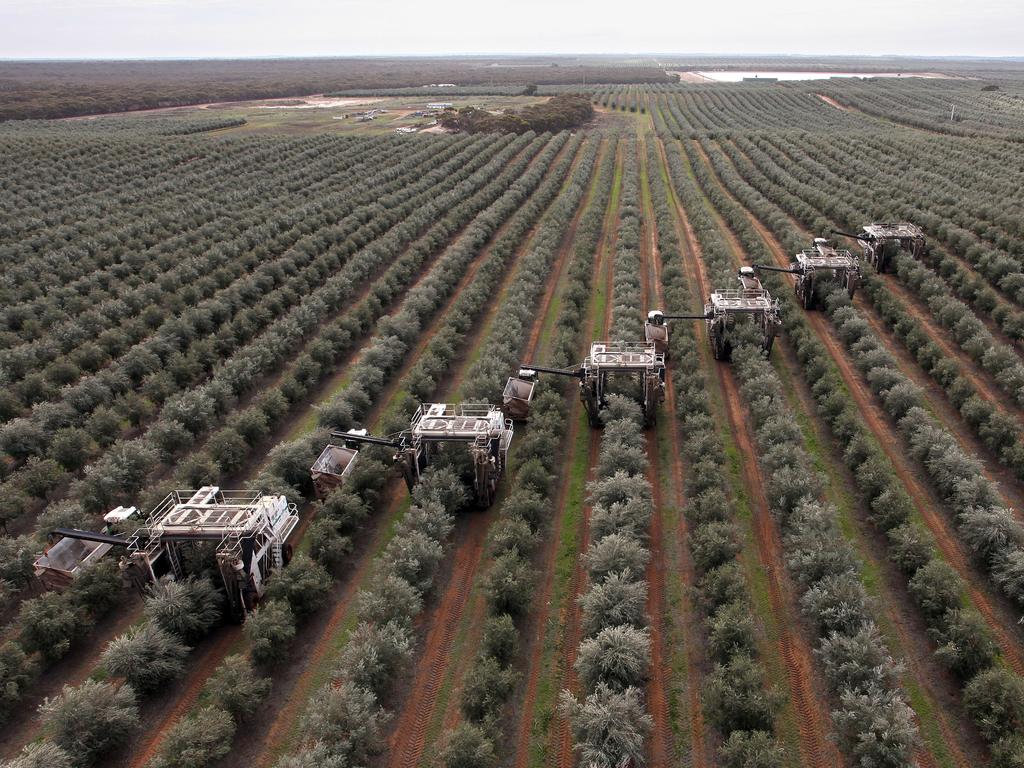Leading animal feed maker Ridley passing price increases to farmers as cost of commodities soars
The nation’s biggest animal feed miller, Ridley, is pushing through price increases for farmers of 30 to 50 per cent, which may lift prices for meat, poultry and fish.

The nation’s biggest animal feed miller, Ridley, is pushing through price increases for farmers of 30 to 50 per cent to cope with cost inflation, a move that could ultimately lift prices for meat, poultry and fish.
Ridley, which produces about two million tonnes a year of finished feeds and feed ingredients from dozens of sites, has also been forced to ramp up its inventory of feed to ensure it can supply its customers in the wake of gridlock caused by Covid-19 and the war in Ukraine.
Soaring wheat prices have been a key driver of inflation flowing from the war, while raw commodities are also at elevated prices, leaving Ridley little choice but to pass higher prices on.
On the eve of The Australian’s Global Food Forum, to be held in Melbourne on Wednesday, Ridley chief executive Quinton Hildebrand said the prices of a number of raw commodities that went into Ridley’s food stock had risen sharply recently, led by wheat, the key ingredient for many of his animal feed products.
It is also facing wages pressure and steeper prices for energy – most of which will eventually be passed through to the end consumer.
“Clearly there’s cost-push inflation through wage expectations and energy costs,” Mr Hildebrand said.
“The big one in animal feeds is obviously the raw materials, with the price of wheat and other commodities going up.
“The implication on Ridley is we operate in the supply chain providing the service through to the customers, so for us it’s mostly a pass-through, and the fact is that there is cost pressures and they are having to be passed through the supply chain.”
The prices of some of Ridley’s feed stock, which is supplied to producers of cattle, pork, dairy, poultry and seafood, have been lifted by 30 and 50 per cent to cope with inflationary pressures.
“The main increase has been the underlying raw materials, of which wheat is a fair indicator,” Mr Hildebrand said.
“The price of wheat in the last 12 months has gone from $300 a tonne to $500 a tonne.
“That gives you some indication of the underlying drivers for the price increases.
“To some degree we are able to substitute wheat where wheat has gone up more than others, because of the Ukrainian impact, substituting with other cereal crops like barley and other options, but by and large it’s a significant price increase.”

Farmers who face these price rises are likely to pass them on to wholesalers and then to retailers.
Recent inflation figures from the ABS show fresh food prices – led by products such as meat – outpacing the rise in dried or packaged groceries.
A recent survey of supermarket prices by UBS showed that at Woolworths over the third quarter inflation was running at 4.3 per cent against only 1.4 per cent in the second quarter, while at Coles, March quarter inflation was at 3.2 per cent against 1 per cent in the second quarter.
When the ABS released March quarter inflation statistics it revealed grocery inflation running at 5.3 per cent, which contributed to a breakaway overall inflation rate and pushed the Reserve Bank to lift interest rates.
Outside of the rising cost of doing business, Mr Hildebrand said the agribusiness was also tackling supply chain constraints, both from transporting goods within Australia as well as importing products into Australia, and this was also having an impact on its business.
“As far as supply chains are concerned, any domestic supply chains with some restrictions on drivers and transport are having some implications and then international supply chains, inward bound into Australia, are stretched,” he said.
“As a business we have taken on some more inventory just to be able to manage that.
“At this point we haven’t let any customers down and we are able to continue operating but supply chains are fragmented.”
Mr Hildebrand said Ridley had “robust supply chains” and that it wasn’t exposed to a single supplier, giving it confidence in securing its supplies and raw commodities needed to manufacture its animal feed.
However, it was lifting its inventory holdings as a hedge against any further supply chain slowdowns.
“As a result, we’ve got enough contingencies,” he said. “That’s been fine. It’s really just the (supply) timeline and therefore the working capital that you need to be tied up to support that.”








To join the conversation, please log in. Don't have an account? Register
Join the conversation, you are commenting as Logout